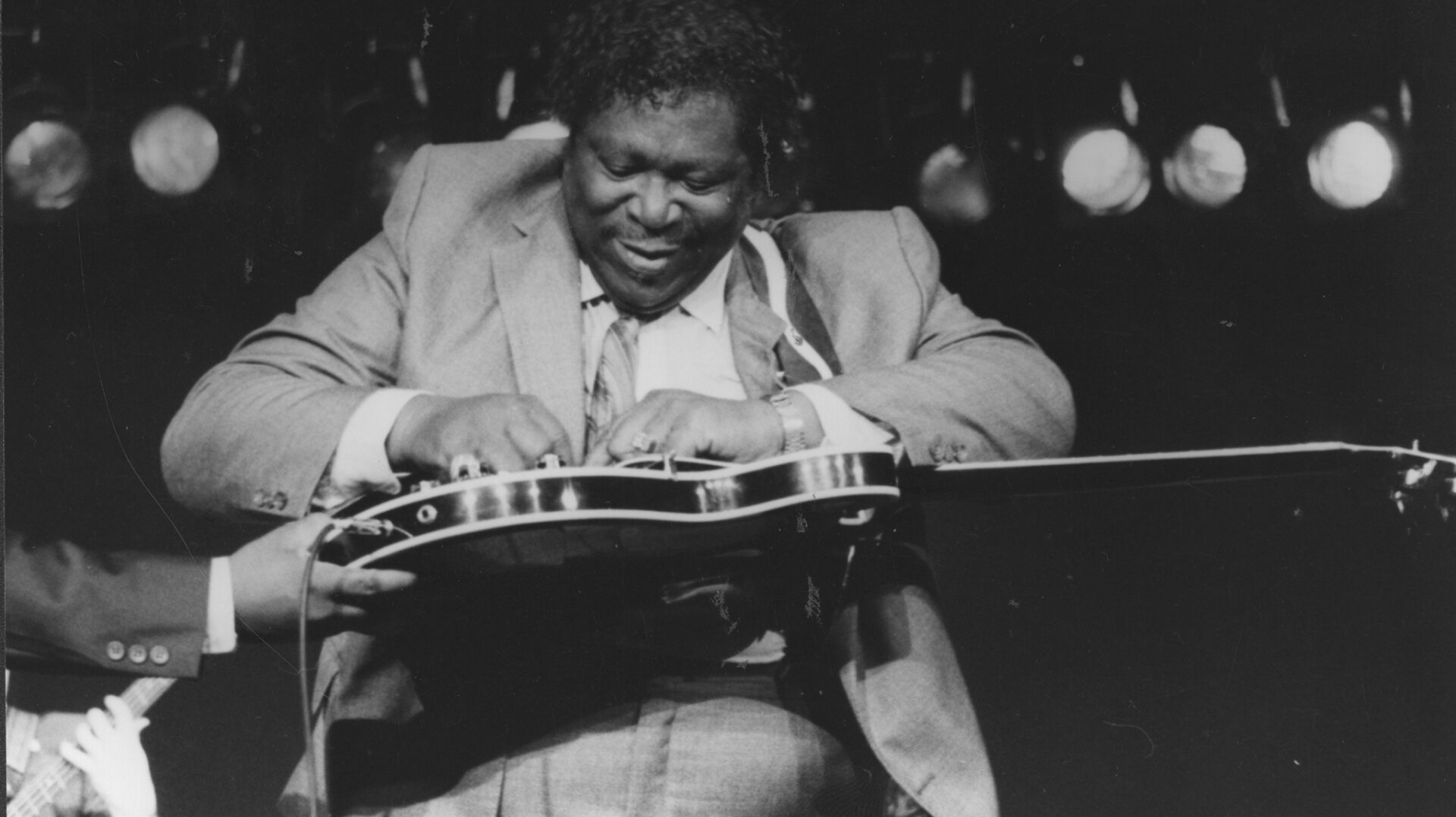
Photo courtesy of UM Blues Archive in Special Collections at J.D. Williams Library.
Trailblazer, celebrated Mississippian and blues legend B.B. King passed away in his sleep on May 14. He died peacefully at 89 after a half-century career of moving audiences with his music and live performances. But the thrill isn’t gone, B.B.; it’s just found in a different place.
For those not aware, between 1982 and 1983, King donated 8,000 sound recordings from his personal collection to UM’s Blues Archive, which, including King’s generous donation, features more than 60,000 sound recordings, 20,000 photographs and 1,000 videos housed at the J.D Williams Library. The Blues Archive is one of the world’s largest public collections of blues recordings, publications and memorabilia.
Greg Johnson, blues curator at J.D. Williams Library and associate professor, has had the unique ability to wade through King’s collection to honor the great musician and witness the lasting footprint of an icon.
“The amount of people he influenced and the reach of his music cannot be diminished,” Johnson said. “B.B. was a lifelong learner. He always tried to better himself. In his collection he had countless books trying to teach himself while constantly on the road performing.”
Brett Bonner, editorial director at Living Blues Magazine, also worked for a short time at the Blues Archive and has seen his fair share of the monstrous collection.
“You can tell a lot about a man by his record collection,” Bonner said. “While working on the radio show ‘Highway 61′ with Bill Ferris (first director of Southern studies and the Blues Archive), I was able to look and pull from B.B.’s collection as far as I wanted. It featured thousands of LPs. I felt I learned more about him looking through his collection; I could figure out what kind of music excited and influenced him.”
King has always been regarded as a kind and gracious man, always treating people the right way, but he was also an avid learner. It is fitting that UM is able to house and chronicle his unique collection since it features not only recordings of other musicians, but also books, manuscripts and materials signifying how King never stopped learning.
“He always tried to better himself,” Johnson said. “In his collection, I found foreign language books that he would study to learn common phrases in order to speak to audiences when he would tour around the world.”
“I found a pilot book because B.B. was a trained pilot,” Bonner said. “And you wouldn’t believe it, but I also found a copy of a book detailing how to play the guitar!”
King made it a point to come back to Mississippi. In 2004, the university gave him the title of Honorary Professor of Southern Studies, one of many distinguished titles he had received from numerous universities. Johnson publicly interviewed King for the ceremony.
“It is a testament to the various universities honoring him with degrees and doctorates,” Johnson said. “When I got to publicly interview him, he was such a gracious and kind man, very down to earth.”
“B.B. would always come back to give concerts,” Bonner said. “Whether it was his homecoming concert in Indianola or the Medgar Evers Memorial Blues Concert, B.B. felt it was really important for him to be there.”
King influenced millions of people with his music. Countless musical genres, such as rock ‘n’ roll, R&B, gospel, jazz and more, can thank the work of King and his beloved Gibson guitar, Lucille.
“The amount of people he influenced and the reach of his music is unbelievable,” Johnson said. “Blues is the biggest cultural export of the state, and B.B. truly was an ambassador. He wasn’t one just for the blues or Mississippi, but for the entire United States.”
So whether in Mississippi, California or even Russia, people around the world will still find solace in the music King made, knowing he is in a better place.
For more heartfelt responses from UM and its family on the passing of B.B. King, read Johnson’s blog.
Courtesy UM Communications
